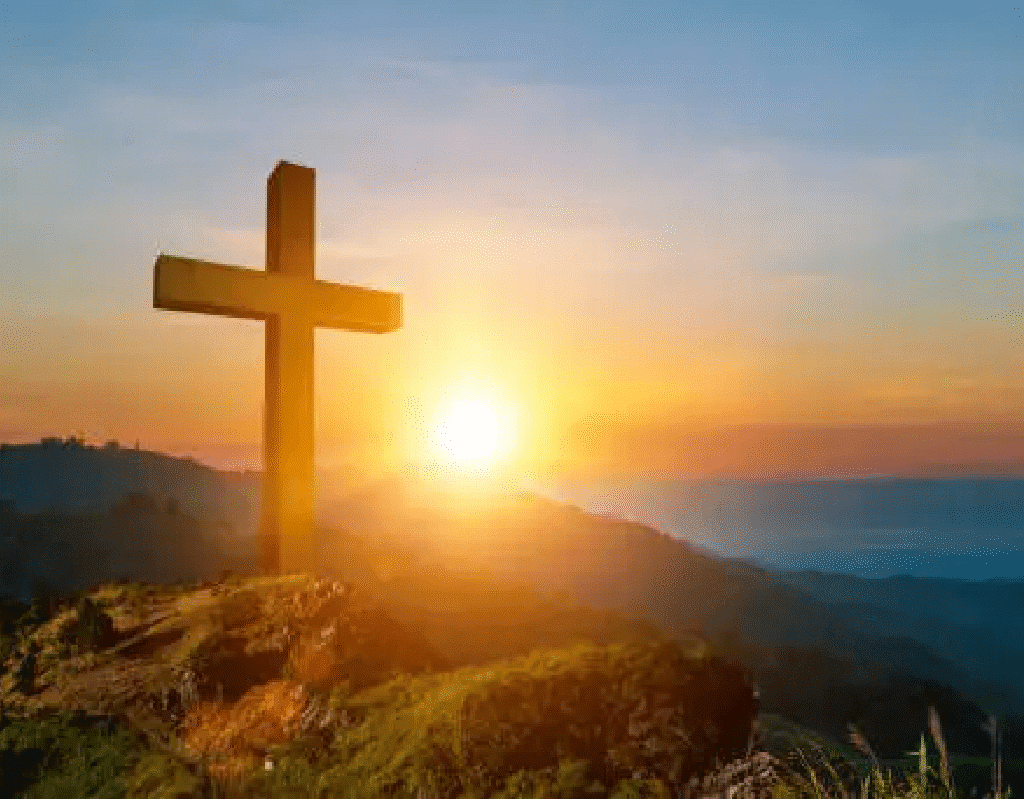Greetings from Pastor Khader:
Dear Siblings in Christ,
Just imagine living in a room the size of a jail cell, on top of a mountain, in the middle of the desert, in the attic of a tiny house. Imagine you’re always hungry, because in order to get food, you have to lower a bucket to the people down below you. They fill it with simple foods—maybe bread and water. You have no comforts, and little light. You live in this room by yourself; your only human contact is with the voices that drift up to you from the rooms below.
You probably think I’m describing a jail. To most of us here in New York, this sounds terrible. In this country, Christianity goes hand in hand with freedom and abundance.
But I have seen Christians who live in this way by choice. In fact, the monk I just described lives on a mountain in Jericho, Palestine—the very place where Jesus was tempted by the devil. The monks who live there today are part of the monastic movement, which actually began on that very mountaintop in my home country many centuries ago.
Maybe you expected me in this article to write about our recent trip to the Holy Land and Jordan; however, I’ve decided to postpone this to a time during coffee hour. We are waiting for the travel agency to send us the pictures and video and will keep you posted about the exact date. This article is going to be about the monastic movement.
The monastic movement started when early Christians began a tradition of moving to the desert to follow the same path toward God that Jesus followed when he fasted for forty days in the wilderness and felt the Holy Spirit.
The monastic movement looks at Jesus’ life as an example, instead of as something divine that they will never touch. They see Jesus’ life as a model of how they can make the most of every moment of their existence by challenging and proving to themselves and to God that they are really committed to God and are working to be close to God. They use fasting and other kinds of physical, mental, and psychological challenges to strengthen and weaken their spirits at the same time, and they commit to being completely devoted to prayer, Bible study, and this type of “spiritual discipline.”
In addition to Jesus, they also look at Old Testament prophets such as Samuel, Elisha, Nathan, and John the Baptist as people who would inspire them to follow the Holy Spirit and throw away their attachment to physical objects, popular culture, and all of the other things in their lives that they consider to be either sinful or just distracting from the true life close to God.
If we look back in the Bible, we see a desert where Moses hears the voice of God calling out from a burning bush, and where he then leads his people out of slavery, through forty years of exile. We see a desert cave that hides and comforts Elijah, and where he too hears God’s voice giving him purpose and direction. In the desert, the prophet Hosea tells us, God will reignite our loyalty to faith. In other words, the biblical desert is a place where prophets come to hear the voice of God.
So Lent is about the quiet voice of God that comes to us in these moments of need. When we make room in our spirits, the Holy Spirit enters. When we trust this Spirit, it leads us into emptiness. And from the emptiness, holiness is reborn.
For Jesus, the long period of starvation in the wilderness emptied his body, and this left his spirit open to receive God’s purpose. Jesus took the Devil’s temptations and turned them on their head. He used them to free himself.
Jesus emerged from the wilderness freed of hunger for food or control, because he had learned that neither bread nor power would truly satisfy him. Jesus learned to trust the Holy Spirit within him, but he also freed himself from the illusion that he could just sit and wait for God to make his choices for him. Jesus realized his own power.
And so Jesus passed his “desert exam,” not only because he disobeyed the Devil’s loud voice, but because he silenced his own desires long enough to hear God calling to him through the empty desert wind. In other words, this story is not only about temptation, but also about the value of the desert wilderness.
Lent is a time of spiritual growth—a time for us to challenge ourselves to smash our idols and material addictions. We are challenged to meet the Devil’s temptations face to face, but to listen through them for the voice of God. During the forty days of Lent, we prepare ourselves to go to Jerusalem and to walk the Via Dolorosa. I pray that your Lenten season will be not a prison or a punishment, but will instead be a celebration of the desert’s opportunities.

